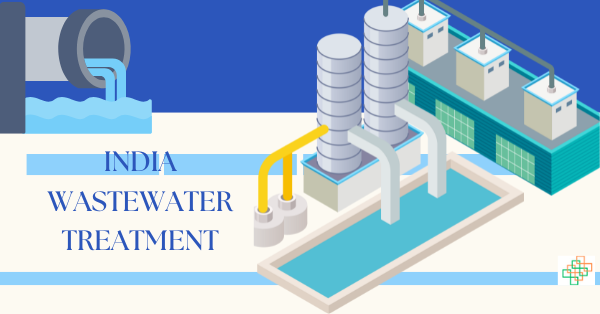Hello friends, today we will talk about a topic which is very important in human life, that is water, so do you know how much water you use every day? So let us tell you how much water you waste in everyday. First of all, you waste a lot of water in your bathroom, kitchen and industry. All of these together create a huge amount of water waste. But the good thing is that we can reuse this waste water. So let us know how we can reuse this waste water.
Wastewater is the water that is left over from our homes, industries, factories and fields after use. This water contains a lot of chemicals, bacteria and pollutants that have a huge impact on the environment as well as our health, but it can also become a resource.

Where do you get waste water from?
Domestic waste
All the water that comes out after cleaning domestic things like kitchen, bathroom, toilet and house is waste water.
Industrial Effluents
Whatever chemicals and heavy metals are found in water, it is all wastewater.
Agricultural Runoff
The water that flows into the fields is all wastewater mixed with fertilizers and pesticides.
Why do we need wastewater treatment?
Lack Of Water
Water shortage is a very big problem in India. We can solve this problem. We can conserve fresh water by reusing treated wastewater in agriculture and factories.
Disease Of Pollution
Wastewater gets mixed in rivers and lakes and this pollutes the water. This is causing a lot of harm to both animals and humans living in the water.
To Protect Health
Polluted water causes many diseases like cholera and typhoid. Proper water treatment can greatly reduce these health risks.
Process of Wastewater Treatment
Wastewater treatment is a scientific and structured process that cleans water and makes it usable again. It has three stages which are as follows:
Primary Treatment
The first process of water treatment is to remove large particles and debris from water. This screen and sedimentation tank separates sand tables and suspended solids.
Secondary Treatment
The secondary plan of water treatment is that the organic pollutants present in it are removed through biological processes.
Activated Sludge- The bacteria and microorganisms in it break down harmful pollutants.
Tertiary Treatment
This is the final purification step of wastewater. Advanced techniques like reverse osmosis and UV disinfection are used in this process. After this process the treated water is now fit for industrial use or irrigation.
Advanced Technologies of Wastewater Treatment
New methods and technologies are being developed not only in India but all over the world for wastewater treatment:
Membrane Bioreactors (MBR)
This is an advanced technology that treats wastewater efficiently. This process involves a combination of membranes and biological treatment.
IoT-Enabled Systems
With IoT devices, wastewater plants can be monitored remotely from anywhere, which greatly increases efficiency.
Anaerobic Digesters
These produce methane gas, which is a clean energy source.
Electrocoagulation
This technology is used to treat wastewater coming out of industries.
Status of Wastewater Treatment in India
Wastewater treatment is still a developing sector in India. The pollution levels in rivers like Ganga and Yamuna are so high that it is alarming.
What is the role of the government?
Government projects like:
1. Namami Gange Program: The government is setting up specific wastewater treatment plants to clean the Ganga.
2. AMRUT Mission: Provides funds to urban local bodies to improve wastewater treatment.
Urban Vs Rural Areas
• In urban areas, wastewater treatment plants are gradually improving.
• But in rural areas, there is still a great lack of awareness and infrastructure.
What are the challenges in wastewater treatment?
- High cost makes installing advanced treatment plants expensive.
- Public awareness about wastewater reuse benefits is still lacking.
- Policy implementation remains ineffective despite existing laws.
- Infrastructure gap highlights the insufficient number of treatment plants in India.
Solutions that will take India forward
- Affordable technology promotes cost-effective solutions accessible to small sectors.
- Decentralized treatment plants enable wastewater management in rural areas.
- Awareness programs highlight water conservation benefits in schools and communities.
- Strict regulations ensure industries adopt effluent treatment plants.
What are the benefits of wastewater treatment?
Saving The Environment
Treated water does not go into rivers and oceans and does not cause pollution, thus, humans and animals will not be harmed.
Water Reuse
Water can be reused in agriculture sector, industries and public spaces.
Energy Generation
The methane gas produced from this can become a renewable energy source.
Sustainable Development
Wastewater treatment is beneficial for sustainable urban development.
A Look at India’s Future
India’s wastewater treatment sector is expected to grow significantly in the next few years. Experts say the demand for wastewater treatment technologies could double by 2025.
Some Key Trends:
• Better wastewater management systems will be built in all Smart City projects that are being built or will be built.
• Industries are incorporating water recycling in their operations.
Conclusion
In this blog article, we have told that water is an integral part of everyone’s life. Wastewater treatment is a necessity, which helps us a lot in saving water and reducing pollution. It is the duty of every citizen to not waste water unnecessarily and support wastewater treatment initiatives. What do you think about this? Do share your opinion with us in the comments and do share this blog with your friends so that we and our family members do not have to face any problem.
FAQs
Wastewater is water that is left over after domestic, industrial or agricultural use and contains harmful pollutants.
It is a process that makes water reusable, reduces pollution and reduces health risks to a great extent.
Treated water is mainly used for agriculture, industries, and gardening.
The future of wastewater treatment is looking bright due to government initiatives and advanced technologies, which will promote sustainability.
